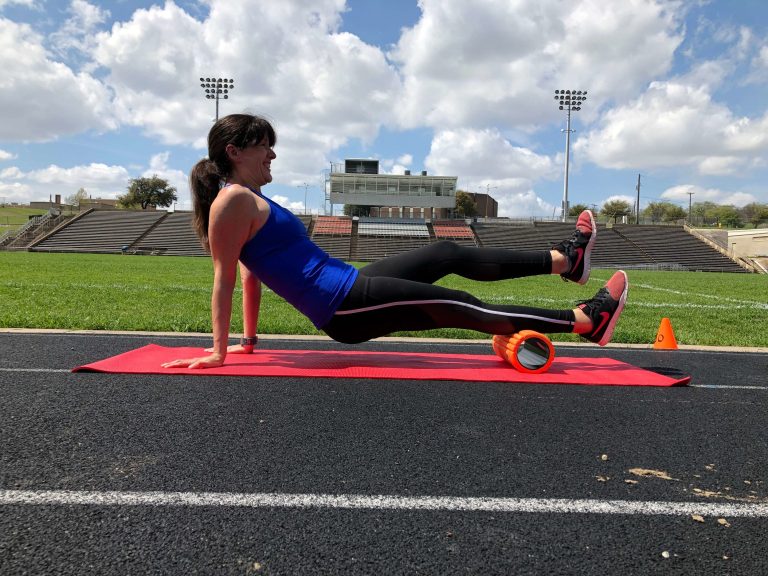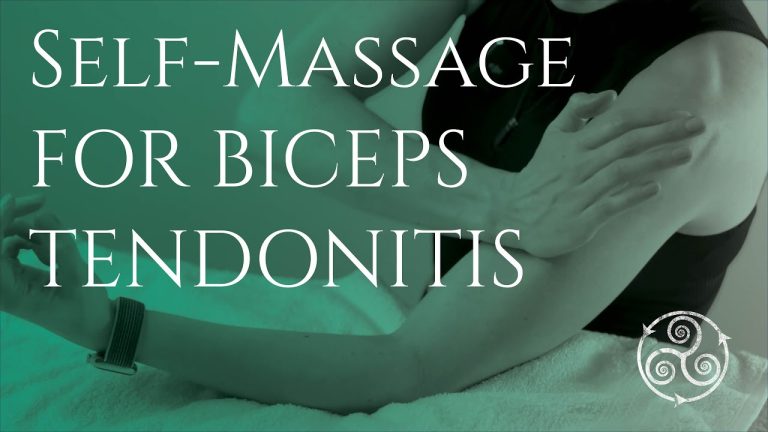Homeopathic Remedies Inflammation: Natural Approaches for Effective Relief
In a world that seems constantly bombarded with stress, pollution, and unhealthy habits, inflammation has become a common adversary for many. The quest for effective remedies has led countless individuals down diverse paths, seeking solace from the burden of inflammation.
From lifestyle changes to herbal concoctions, the possibilities seem endless. Amongst these options, homeopathy stands out as an intriguing choice.
This ancient alternative healing practice relies on the principle of “like cures like,” harnessing the power of highly diluted substances to stimulate the body’s innate healing response. Join us as we venture into the realm of homeopathic remedies for inflammation, exploring the potential of this age-old practice to provide relief and restore balance.
homeopathic remedies inflammation
Homeopathic remedies can be effective in reducing inflammation in various parts of the body. Different homeopathic remedies are recommended for specific types of inflammation.
For example, Belladonna can be used to treat fever resulting from inflammation, Merc Sol is used for sore throat and tonsillitis, and Natrum Mur is suitable for managing rhinitis. Kali Bichrome is effective for sinusitis, Pulsatilla can manage ear inflammation, and Euphrasia is recommended for inflammation of the conjunctiva.
Rhus Tox is good for joint inflammation and pain, Bryonia is beneficial for muscle inflammation, and Ruta is recommended for tendon inflammation and tendonitis. Apis Mellifica can be used for skin inflammation, and Chelidonium is valuable for liver inflammation.
Homeopathic remedies offer a safe and effective treatment option for reducing inflammation in various parts of the body.
Key Points:
- Homeopathic remedies can effectively reduce inflammation in different parts of the body.
- Specific homeopathic remedies are recommended for different types of inflammation.
- Examples of recommended remedies include:
- Belladonna for fever resulting from inflammation
- Merc Sol for sore throat and tonsillitis
- Natrum Mur for rhinitis
- Kali Bichrome for sinusitis
- Pulsatilla for ear inflammation
- Euphrasia for conjunctiva inflammation
- Rhus Tox for joint inflammation and pain
- Bryonia for muscle inflammation
- Ruta for tendon inflammation and tendonitis
- Apis Mellifica for skin inflammation
- Chelidonium for liver inflammation
Sources
https://www.verywellhealth.com/natural-inflammation-remedies-89284
https://www.drhomeo.com/homeopathic-treatment/top-homeopathic-medicines-for-inflammation-and-pain/
https://homeomart.net/2021/09/14/homeopathy-medicines-list-for-inflammation-swelling/
https://www.chikitsa.com/homeopathic-remedies-for-pain-and-inflammation
Check this out:
💡 Pro Tips:
1. Aconitum Napellus is a homeopathic remedy that can help reduce inflammation caused by sudden exposure to cold weather or drafts.
2. Homeopathic remedy, Arnica Montana, is effective for reducing inflammation caused by muscle sprains and strains.
3. Ruta Graveolens is a homeopathic remedy that can help reduce inflammation in the tendons, particularly in cases of tendonitis or overuse injuries.
4. Calendula Officinalis is a homeopathic remedy that can be used topically to reduce inflammation and promote healing of wounds and skin irritations.
5. Hypericum Perforatum is a homeopathic remedy that can help reduce inflammation and nerve pain, particularly in cases of nerve injuries or conditions such as sciatica.
Lifestyle Changes For Reducing Chronic Inflammation
Chronic inflammation is a condition that affects many people and can have serious health consequences if left untreated. However, there are lifestyle changes that can help reduce inflammation and promote overall well-being.
One important lifestyle change is to manage stress levels. Chronic stress can lead to increased inflammation in the body, so finding healthy ways to cope with stress is crucial.
Engaging in activities such as meditation, deep breathing exercises, or even practicing mindfulness can help reduce stress and lower inflammation levels.
Another lifestyle change that can alleviate inflammation is regular exercise. Physical activity not only helps reduce inflammation but also promotes weight loss, improves cardiovascular health, and enhances overall well-being.
Engaging in exercises like brisk walking, swimming, or yoga can be beneficial for reducing chronic inflammation.
Additionally, getting enough sleep is imperative for managing inflammation. Lack of sleep can increase inflammation markers in the body, so aiming for seven to eight hours of quality sleep each night can make a significant difference.
Creating a relaxing bedtime routine, avoiding electronics before bed, and ensuring a comfortable sleep environment can all contribute to better sleep quality and reduced inflammation.
Omega-3 Fatty Acids For Lowering Inflammation
Omega-3 fatty acids, found in fish oil and flaxseed oil, have been widely recognized for their anti-inflammatory properties. These essential fats play a crucial role in reducing inflammation in the body and promoting overall health.
Research has shown that omega-3 fatty acids can inhibit the production of inflammatory substances in the body, such as prostaglandins and leukotrienes. Incorporating fish oil or flaxseed oil into your daily diet can help lower inflammation levels and provide relief from chronic inflammation.
Key Takeaway: Include omega-3 fatty acids, such as fish oil or flaxseed oil, in your diet to help lower inflammation and promote overall health.
Herbs For Reducing Inflammation
In addition to lifestyle changes and omega-3 fatty acids, certain herbs have been found to have anti-inflammatory properties and can be used as natural remedies for inflammation.
Curcumin, the active compound in turmeric, has been extensively studied for its anti-inflammatory effects. It has shown promise in reducing inflammation in conditions such as arthritis, heart disease, and even cancer.
Adding turmeric to your meals or taking curcumin supplements can help reduce chronic inflammation.
Ginger is another powerful herb known for its anti-inflammatory properties. It contains compounds called gingerols, which have been shown to inhibit inflammatory pathways in the body.
Incorporating ginger into your diet, either by adding it to your meals or drinking ginger tea, can have a positive impact on reducing inflammation.
Other herbs that may help reduce inflammation include boswellia, green tea, and holy basil. These herbs have been traditionally used in Ayurvedic medicine for their anti-inflammatory properties and can be incorporated into your daily routine for natural relief.
Key Takeaway: Consider incorporating herbs like curcumin, ginger, boswellia, green tea, and holy basil into your diet to help reduce inflammation naturally.
Yoga For Lowering Inflammation Markers
Regular yoga practice has been shown to have numerous health benefits, including reducing inflammation markers in the body. Yoga combines gentle movements, breathing exercises, and meditation, which can help reduce stress and promote overall well-being.
A study published in the Journal of Clinical Neurology found that participants who practiced yoga for eight weeks showed significant reductions in markers of inflammation compared to the control group. The researchers attributed this effect to the stress-reducing properties of yoga and its ability to restore balance to the body.
Yoga postures, such as forward bends, twists, and inversions, can stimulate the lymphatic system and improve circulation, thereby reducing inflammation. Moreover, deep breathing exercises during yoga practice can activate the parasympathetic nervous system, which helps calm the body and reduce inflammation.
Key Takeaway: Regular yoga practice can help lower inflammation markers in the body by reducing stress and promoting relaxation.
Anti-Inflammatory Diet For Reducing Inflammation
Following an anti-inflammatory diet is essential for reducing inflammation and promoting overall health. Foods rich in antioxidants, omega-3 fatty acids, and anti-inflammatory compounds can play a significant role in managing chronic inflammation.
Include the following foods in your anti-inflammatory diet:
By incorporating these foods into your diet and avoiding processed foods, sugary drinks, and excessive amounts of red meat, you can effectively reduce inflammation and improve your overall health.
Key Takeaway: Adopting an anti-inflammatory diet rich in antioxidants, omega-3 fatty acids, and anti-inflammatory foods can significantly reduce inflammation in the body.
Homeopathic Remedies For Inflammation Treatment
Homeopathy is a safe and effective alternative treatment option for managing inflammation. There are several homeopathic remedies available for different types of inflammatory conditions.
Belladonna is recommended for fever resulting from inflammation. It can help reduce heat and redness associated with inflammation.
Merc Sol is commonly used for sore throat and tonsillitis. It can alleviate pain and swelling in the throat.
Natrum Mur is suitable for managing rhinitis, a condition characterized by inflammation of the nasal mucous membranes. It can relieve nasal congestion, sneezing, and itching.
Kali Bichrome is effective for sinusitis, an inflammation of the sinuses. It can help reduce nasal congestion and promote sinus drainage.
Pulsatilla can manage ear inflammation, reducing pain and discomfort associated with conditions like otitis media.
Euphrasia is recommended for inflammation of the conjunctiva, helping to relieve redness, itching, and watering of the eyes.
Rhus Tox is known for its effectiveness in treating joint inflammation and pain, particularly in conditions like arthritis.
Bryonia is beneficial for muscle inflammation. It can help alleviate pain, swelling, and stiffness in muscles.
Ruta is recommended for tendon inflammation and tendonitis. It can assist in reducing pain and promoting healing of tendons.
Arsenic Album is useful for stomach inflammation, providing relief from symptoms like abdominal pain, bloating, and diarrhea.
Cantharis is recommended for urinary bladder and urethra inflammation. It can help reduce pain and burning sensation during urination.
Merc Cor is important for large intestine and rectum inflammation, assisting in relieving symptoms such as diarrhea, cramping, and bleeding.
Apis Mellifica is beneficial for skin inflammation, reducing redness, swelling, and itching commonly associated with conditions like dermatitis.
Chelidonium is valuable for liver inflammation, supporting liver function and reducing inflammation in this vital organ.
Overall, homeopathy offers a range of remedies for different types of inflammation, providing safe and effective relief without the side effects often associated with conventional medications.
Key Takeaway: Homeopathic remedies such as Belladonna, Merc Sol, Natrum Mur, Kali Bichrome, Pulsatilla, Euphrasia, Rhus Tox, Bryonia, Ruta, Arsenic Album, Cantharis, Merc Cor, Apis Mellifica, and Chelidonium can be used to effectively manage various types of inflammation.
In conclusion, chronic inflammation can be effectively reduced through lifestyle changes, incorporation of omega-3 fatty acids, utilization of herbal remedies, regular yoga practice, following an anti-inflammatory diet, and using homeopathic remedies. By making these natural interventions part of your daily routine, you can alleviate inflammation, promote overall well-being, and enjoy a healthier, inflammation-free life.







